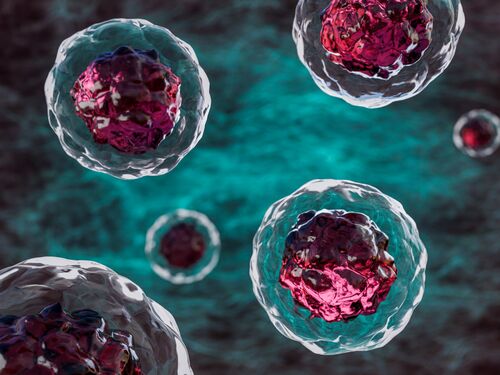Completed
The National Academies will host a workshop on the research and development needs to advance biological applications of quantum-enabled sensing and imaging technologies. The workshop will bring together experts working on state-of-the-art quantum-enabled technologies, as well as groups of scientists who are interested in applying these technologies to biological systems. Through talks, panels, discussions, and poster sessions, the workshop will facilitate a better understanding of the current and future biological applications of quantum-enabled technologies on fields such as microbiology, molecular biology, cell biology, plant science, mycology, and many others.
The workshop was recorded in full and available to watch here.
Featured publication
Workshop
·2021
Quantum concepts hold the potential to enable significant advances in sensing and imaging technologies that could be vital to the study of biological systems. The workshop Quantum Science Concepts in Enhancing Sensing and Imaging Technologies: Applications for Biology, held online March 8-10, 2021,...
View details
Description
At the request of the Department of Energy's Office of Biological and Environmental Research (BER), the National Academies of Sciences, Engineering, and Medicine will appoint an ad hoc planning committee to organize and convene a workshop on research and development needs to advance the use of quantum-enabled sensing, imaging, and instrumentation technologies for biological applications. The main emphasis will be on applications of quantum sensing and imaging technologies at the cellular and molecular level in plant science, microbiology, and mycology to conform to the areas of most interest in BER. However, speakers and attendees will also be asked to discuss quantum-enabled sensing and imaging technologies meant to advance these and other fields of biological science. The workshop will draw on research, information, and ideas from key stakeholders representing the quantum sensing scientific community, the engineers and scientists developing biological sensors, imaging, and instrumentation technologies, basic scientists who apply biological sensing technologies for imaging, and experts in other relevant fields. The goal of this workshop is to bring together practitioners and thought leaders from these diverse scientific areas to determine mutual interests and knowledge gaps and investigate ways to use their combined expertise to overcome current challenges in biological sensing and imaging. The presentations and discussions may explore the following:
- The history of and terminology for quantum sensing and imaging technologies, as well as any established biological applications.
- Descriptions of current biological applications of quantum sensing and imaging as well as other potential areas of biology where these technologies might be applied.
- Understanding what advantages are imparted by quantum-enabled sensing and imaging technologies over their classical counterparts. For example, will these technologies provide a better signal-to-noise ratio, better depth of interaction (to image deep-seated signals), or increase the spatial and temporal resolution of imaging cellular and molecular functionalities?
- Determining what disadvantages, strategies, feasibility, and technical needs must be addressed for applying the principles of quantum sensing and imaging to advance the fields of interest in biology. How might the demonstrated uses of quantum approaches in other fields be adaptable to plant science, microbiology, and mycology, especially for work in intracellular molecular phenomena and intercellular interactions? What impediments must be overcome for these applications to succeed, and what investments could help drive the convergence of these disparate fields forward?
- Exploring how the applications of these technologies could have broader impacts in areas such as the development of renewable energy sources, understanding the effects of earth systems changes on biota, and the advancement of biotechnology.
- Identifying the education, training, and workforce needs for advancing quantum sensing and imaging technologies in biology.
The workshop presentations and discussions will be documented in a workshop proceedings authored by rapporteur(s) in accordance with National Academies guidelines.
Contributors
Committee
Chair
Member
Member
Member
Member
Member
Member
Steven Moss
Staff Officer
Sponsors
Department of Energy
Staff
Steven Moss
Lead
Jessica De Mouy
More like this
Events
Right Now & Next Up
Stay in the loop with can’t-miss sessions, live events, and activities happening over the next two days.
TRB Annual Meeting | January 11 - 15, 2026
January 11 - 15, 2026 | The TRB Annual Meeting brings together thousands of transportation professionals worldwide for sessions across all modes and sectors.

